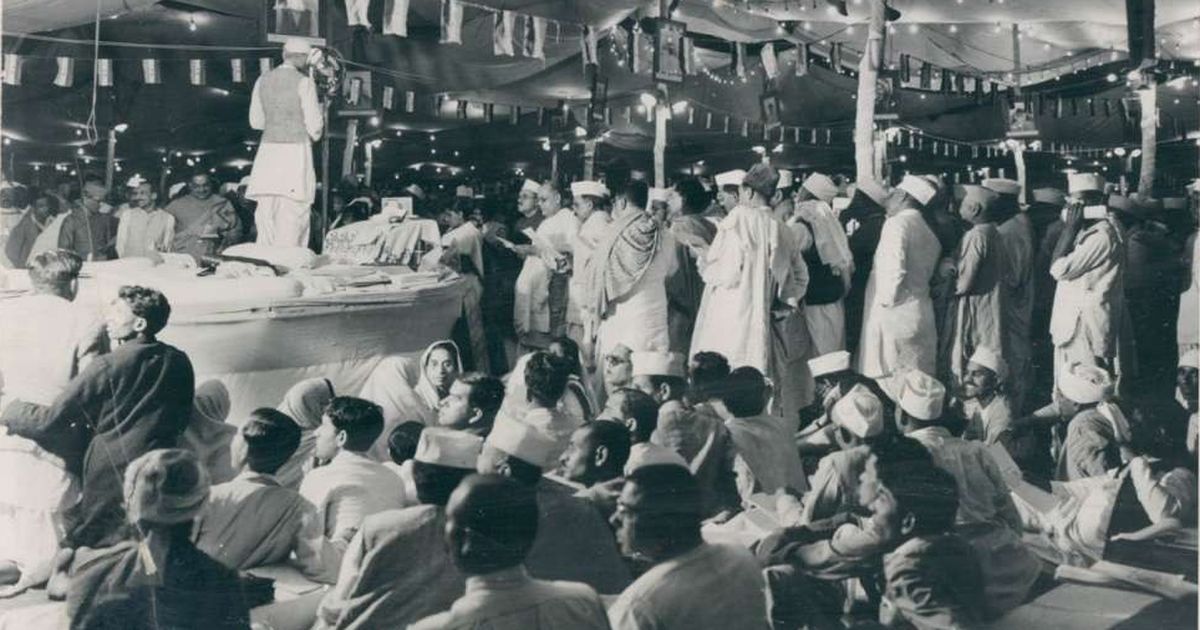Purna Swaraj Declaration at the Lahore Session: India's Resolve for Complete Independence
History Indian HistoryPosted by NewAdmin on 2025-02-06 08:59:50 |
Share: Facebook | Twitter | Whatsapp | Linkedin Visits: 32

The Purna Swaraj Declaration, or the Declaration of Complete Independence, was proclaimed on December 31, 1929, at the Lahore Session of the Indian National Congress. This historic event marked a significant shift in India's struggle for freedom, as the Congress officially rejected British dominion status and declared complete independence as its ultimate goal. The session was held under the presidency of Jawaharlal Nehru and was attended by thousands of enthusiastic nationalists.
The demand for complete independence arose due to the failure of earlier negotiations with the British government. The Nehru Report of 1928 had proposed dominion status for India within the British Empire, but the British government showed no willingness to accept it. Moreover, the Simon Commission, which had arrived in India in 1928 to suggest constitutional reforms, was widely opposed because it did not include any Indian members. These developments led to growing frustration among Indian leaders, especially the younger generation, who believed that nothing short of full independence was acceptable.
During the Lahore Session, the Indian National Congress adopted a resolution stating that India would no longer accept British rule and would fight for complete independence. To symbolize this declaration, the Congress decided to observe January 26, 1930, as Independence Day. On that day, people across the country hoisted the Indian flag and pledged to work towards achieving freedom from colonial rule. This tradition continued until India gained independence in 1947, and as a result, January 26 was later chosen as the official date for the adoption of the Indian Constitution in 1950.
The declaration of Purna Swaraj was not just a political statement but also a call for action. It laid the foundation for the Civil Disobedience Movement led by Mahatma Gandhi in 1930. The movement, which began with the famous Dandi March to protest the British salt monopoly, mobilized millions of Indians in nonviolent resistance against colonial rule.
The Lahore Session and the Purna Swaraj Declaration remain one of the most defining moments in India's freedom struggle. It was the first time the Indian National Congress officially demanded complete independence, setting the course for future movements that ultimately led to the end of British rule in 1947.
Search
Categories
Recent News
- SEBI's Reformative Push for Market Integrity
- South Africa's Cricket Renaissance: A Squad with Depth
- Warriors' Dynasty in Doubt: Draymond Green's Imminent Departure
- Cricket's Power Struggle: Money vs. Autonomy
- Sacred Sweets Scandal: Tirupati Prasadam Under Scrutiny
- Klaasen's Omission: A Surprising T20 World Cup Snub
- Hyderabad Cracks Down on Drunk Driving for New Year's Safety
- IIT Bombay Tragedy: Student's Fatal Leap from Hostel
Popular News
- Navigating IPO Market Dynamics Amid Volatility and Regulatory Changes
- Massive Worldwide Microsoft Outage Disrupts Multiple Sectors
- Panjapur Bus Stand to Reshape TNSTC Routes
- తెలుగుదేశం పార్టీ - పేదరికాన్ని నిర్మూలించడంలో వాగ్దానం
- Universities Embrace Remote Learning Technologies Amidst Ongoing Pandemic